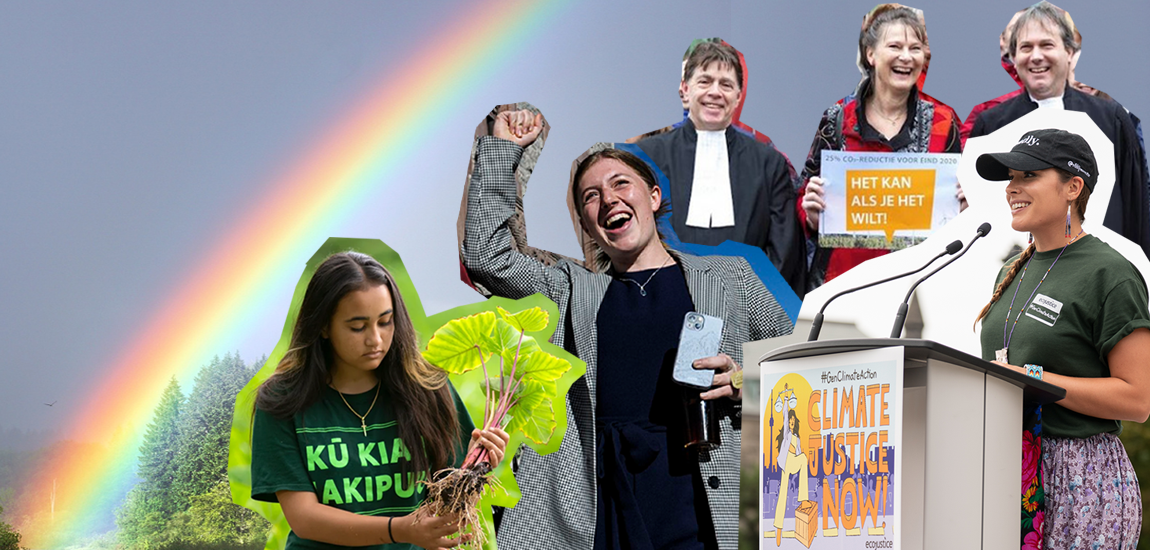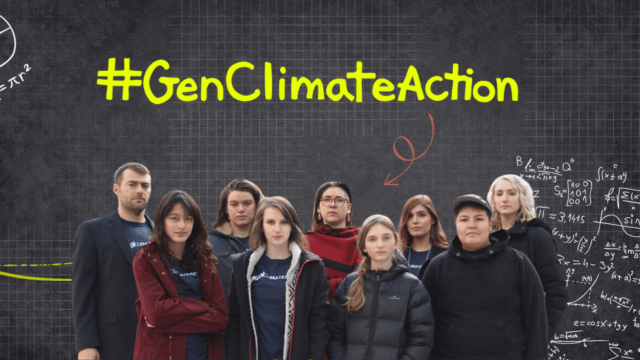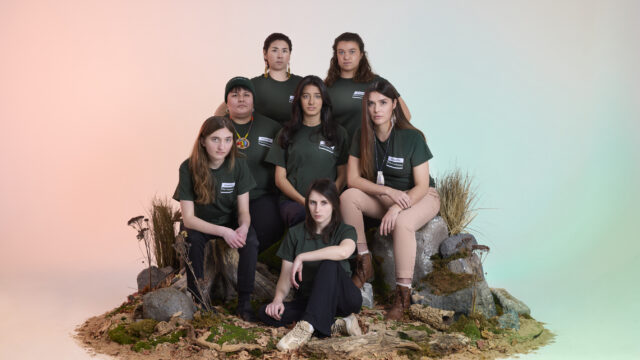Ready for some good news? Climate lawsuits are on the rise. In fact, since 2015 — the year of the Paris Agreement — climate change-related litigation cases have more than doubled worldwide.
And of the decided cases, more than 50 per cent have outcomes favourable to climate action, according to a 2023 report. [1] The same paper found that climate cases continue to have “significant indirect impacts on climate change decision-making beyond the courtroom, too.”
All of which means a climate lawsuit doesn’t have to win to make a global impact. Every bit of progress, whether that’s setting vital precedents or winning in the court of public opinion, allows the next legal team to build on its success and hone new strategies.
As the climate crisis intensifies — faster than many of us imagined it could — it’s clear that we need all the help we can get. Read on to see how activists around the world are turning to the legal system to demand action.
1. Ontario
Mathur et. al. v. His Majesty the King in Right of Ontario
In a year of record-breaking wildfires and extreme weather, these seven young activists shine as beacons of hope. Come January 2024, these climate leaders head to the Court of Appeal for Ontario, battling to overturn a lower court’s dismissal of their groundbreaking case.
For now, we invite you to meet the brave young folks behind Mathur et. al. and learn more about their upcoming appeal.
2. Montana
Held v. State of Montana
In a recent landmark decision, a judge in Montana ruled in favour of 16 young people who had accused the state of violating their constitutional rights by failing to consider the climate impacts of projects.
The court’s decision is based on the plaintiffs’ fundamental right to a clean and healthful environment, “which includes climate as part of the environmental life-support system.”
This surprise victory out of the Big Sky State has profound repercussions for climate litigation and indeed, similar cases are pending in other states. One of which is brought by Hawaiʻi youth plaintiffs…
3. Hawaiʻi
Navahine F. v. Hawaiʻi Department of Transportation
The world’s first constitutional climate change case directed at stopping climate pollution from transportation systems will head to trial next summer.
Youth plaintiffs between the ages of 9–18, most of them Indigenous, say the state’s highway projects promote greenhouse gas emissions and threaten their constitutional rights “to live healthful lives in Hawaiʻi now and into the future.”
Recent research shows that compared to people born in 1960, children born in 2020 are expected to face a two to seven-fold increase in extreme climate events such as heat waves, wildfires, crop failures, droughts, and floods. [2]
The trial will start June 24, 2024, in Honolulu’s environmental court.
4. The Netherlands
Urgenda Foundation v. State of the Netherlands
Arguably the one that started it all: Dutch environmental group, the Urgenda Foundation, and 900 Dutch citizens sued the Dutch government requiring it to do more to prevent climate change.
What started as a letter to the government in 2012 became a landmark legal ruling in 2019 by the highest court in the land.
On 20 December, 2019, the Supreme Court stated that the Dutch government must reduce emissions immediately in line with its human rights obligation. This remarkable precedent set off a surge in global climate lawsuits.
In courts and on the streets — the time for climate action is now. This September, you can join the movement and unite in climate strikes with people across the world.
References
[1] Global trends in climate change litigation: 2023 snapshot — Grantham Research Institute on Climate Change and the Environment
[2] Intergenerational inequities in exposure to climate extremes — Science






